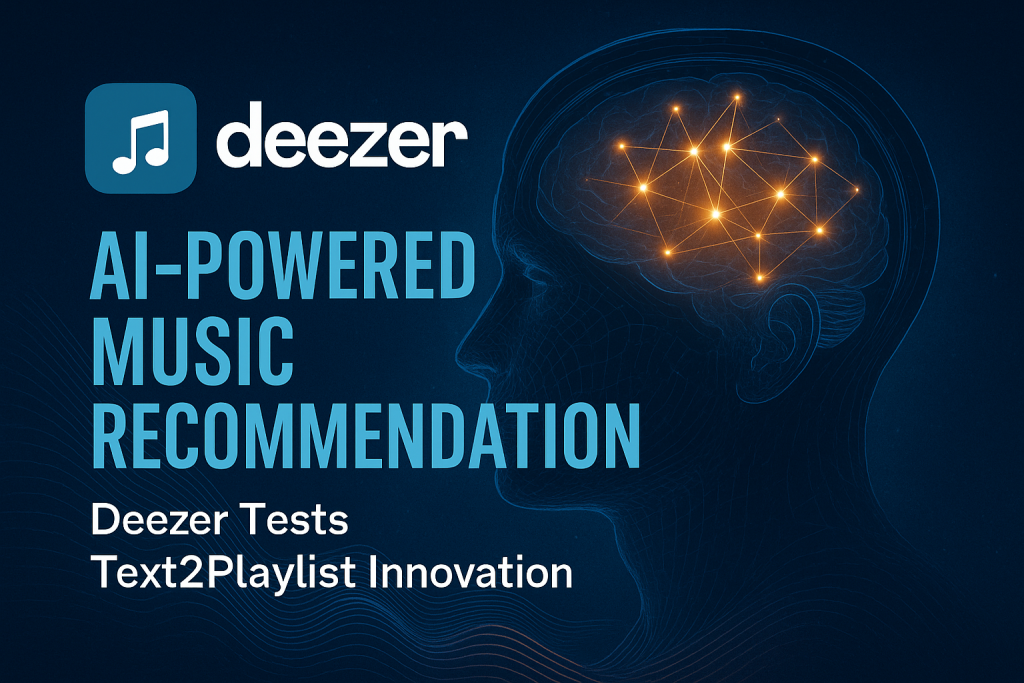Introduction
The future of music streaming is increasingly shaped by artificial intelligence. Deezer, one of the global pioneers in audio streaming, is testing a groundbreaking feature called Text2Playlist. Using advanced deep learning and natural language processing (NLP), this system transforms a simple text description into a fully curated playlist.

How Text2Playlist Works
Instead of searching for artists, genres, or pre-made playlists, users can type a phrase like:
- “chill beats for studying on a rainy day”
- “energetic Afro House for late-night workouts”
Deezer’s AI then analyzes the description, matches it with metadata, mood tags, and audio features, and generates a personalized playlist instantly.
Why It Matters
- Personalization at scale: Playlists are tailored more precisely than ever.
- Discoverability: Lesser-known tracks that match a mood or context can surface more often.
- User experience: Fans no longer need to browse dozens of playlists—they can simply describe what they want.
The Role of Deep Learning
Deezer leverages deep learning models trained on:
- Millions of tracks and playlists.
- User interactions and listening histories.
- Acoustic fingerprints (tempo, key, rhythm, timbre).
This allows the AI to interpret not just keywords, but context and emotions within a request.
Industry Impact
If successful, Text2Playlist could disrupt the way users interact with streaming platforms. It also puts pressure on rivals like Spotify and Apple Music to accelerate similar AI-driven tools. The technology could also integrate with voice assistants, making music discovery even more seamless.
Conclusion
Deezer’s Text2Playlist marks a bold step toward next-generation music recommendation systems. By turning natural language into curated music journeys, it bridges the gap between human emotion and AI precision—a shift that could redefine how listeners explore and enjoy music.
![]()














